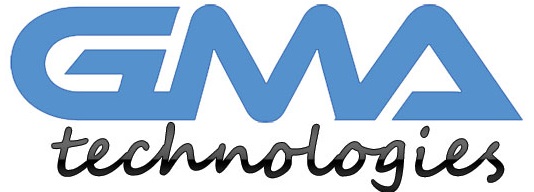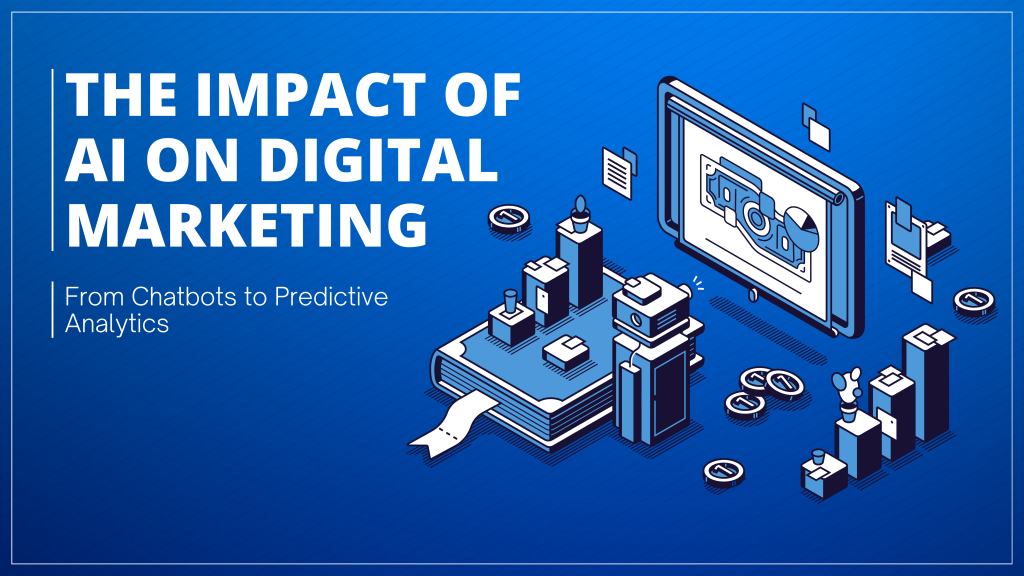In a world where technology is advancing at an unprecedented pace, artificial intelligence has become a game-changer in the field of digital marketing. From personalized chatbots to cutting-edge predictive analytics, AI is revolutionizing how businesses connect with their customers and drive sales. Join us as we explore the profound impact of AI on digital marketing and discover how this transformative technology is reshaping the way brands engage with consumers in today’s fast-paced online landscape.
Introduction to AI and Digital Marketing
Artificial Intelligence (AI) has been a buzzword in the tech world for several years, but its impact on digital marketing is becoming increasingly prevalent. In simple terms, AI refers to the ability of machines or computer systems to perform tasks that typically require human intelligence. This includes activities such as problem-solving, decision making, and even creative thinking.
In the context of digital marketing, AI is revolutionizing the way businesses connect with their target audience. From chatbots that provide instant customer service to predictive analytics that help marketers make data-driven decisions, there are numerous applications of AI in this field. In this section, we will delve deeper into how AI is transforming digital marketing and why it’s important for businesses to embrace this technology.
How AI is Revolutionizing Customer Engagement: The Rise of Chatbots
Artificial Intelligence (AI) has been transforming the way businesses interact with their customers, and one of the most significant developments in this area is the rise of chatbots. Chatbots are computer programs designed to simulate conversation with human users through messaging applications, websites, mobile apps, or through the telephone. They use AI technology such as natural language processing (NLP) and machine learning to understand and respond to customer queries in real-time.
The use of chatbots for customer engagement has been on the rise in recent years, with more and more businesses recognizing their potential to improve customer service, increase efficiency, and reduce costs. In fact, according to a report by Grand View Research, the global chatbot market size is expected to reach USD 1.25 billion by 2025.
One of the primary ways in which chatbots are revolutionizing customer engagement is by providing instant and personalized responses to user inquiries. By leveraging NLP technology, chatbots can understand the context of a conversation and provide relevant answers or solutions quickly. This not only saves time for both customers and businesses but also results in higher satisfaction rates as customers get immediate resolutions to their queries.
Moreover, chatbots can handle multiple conversations simultaneously without any delays or errors. This means that they can cater to an unlimited number of customers at once – something that would be impossible for human agents. As a result, businesses can improve their response times while reducing waiting periods for customers.
– Benefits of Using Chatbots in Digital Marketing
Chatbots have become a popular tool in the digital marketing world, and for good reason. These AI-powered virtual assistants offer numerous benefits for businesses looking to enhance their online presence and engage with their customers. In this section, we will discuss some of the key advantages of using chatbots in digital marketing.
1. Improved Customer Service: One of the main benefits of chatbots is their ability to provide round-the-clock customer service. This means that customers can interact with your brand at any time, even outside of business hours. Chatbots are always available to answer questions, provide product information, or assist with purchases, which leads to increased customer satisfaction and retention.
2. Cost-Effective: Hiring human customer service representatives can be costly for businesses, especially when it comes to providing 24/7 support. Chatbots offer a cost-effective alternative as they can handle multiple conversations simultaneously without any additional costs. This also frees up human employees to focus on more complex tasks.
3. Personalization: With advancements in AI and machine learning, chatbots are becoming more sophisticated in understanding user preferences and behavior patterns. This allows them to deliver personalized experiences by tailoring responses based on individual needs and interests. Personalization helps build stronger connections with customers and can lead to increased conversions.
4. Faster Response Times: In today’s fast-paced world, consumers expect quick responses from businesses. Chatbots excel in this area as they can instantly respond to customer queries without any delays or wait times like traditional human support teams may have. This not only improves the overall customer experience but also helps generate leads faster.
Examples of Successful Chatbot Implementation
Chatbots have become an increasingly popular tool in the digital marketing world, and for good reason. They offer a unique way to engage with customers on a personal level, provide instant support and assistance, and gather valuable data for businesses.
Here are some examples of successful chatbot implementation across different industries:
1. E-commerce – Sephora’s Virtual Artist Chatbot:
Sephora, a cosmetics retail giant, implemented a chatbot called “Virtual Artist” to assist customers with makeup tutorials, product recommendations and reviews. Customers can upload their photo or use live camera view to try on different makeup looks virtually through the chatbot. This interactive experience has proven to be successful in increasing customer engagement and sales.
2. Healthcare – Babylon Health:
Babylon is an AI-powered healthcare app that offers virtual consultations with doctors via chatbot. The bot uses natural language processing (NLP) to understand symptoms and provide medical advice or book appointments with doctors if needed. This has made healthcare more accessible and convenient for patients while reducing wait times for appointments.
3. Banking – Bank of America’s Erica:
Bank of America’s virtual assistant Erica helps customers manage their finances by providing personalized insights based on spending habits, bill payments reminders, budgeting tips and more through text or voice commands. Since its launch in 2018, Erica has been used by over 12 million Bank of America customers, resulting in improved customer satisfaction and retention rates.
4. Hospitality – Marriott Hotels’ ChatBotlr:
Marriott launched its own messaging platform called “ChatBotlr” which allows guests to make requests such as room service orders, housekeeping services or even booking activities through Facebook Messenger or WhatsApp during their stay at Marriott hotels. This has not only enhanced the guest experience but also streamlined operations for hotel staff.
5. Retail – H&M’s Kik Chatbot:
H&M utilized Kik messenger as a platform for its chatbot where users could interact with the bot to get styling tips, outfit recommendations and even make purchases directly through the chatbot. This resulted in increased sales as well as improved customer engagement.
These successful implementations of chatbots across different industries demonstrate their versatility and effectiveness in improving customer experience, increasing efficiency and driving business growth. With advancements in AI technology, we can expect more innovative uses of chatbots in digital marketing in the future.
The Role of AI in Targeted Advertising: Predictive Analytics
The use of artificial intelligence (AI) in targeted advertising has revolutionized the digital marketing landscape. With the advancements in predictive analytics, businesses can now leverage AI to deliver personalized and highly targeted advertisements to their audience. In this section, we will dive deeper into the role of AI in targeted advertising and how predictive analytics is driving its success.
Predictive analytics is a subset of AI that uses historical data, statistical algorithms, and machine learning techniques to forecast future outcomes. In the context of digital marketing, it involves analyzing vast amounts of consumer data to predict their behavior and preferences. This information is then utilized by businesses to create targeted ads that are more likely to resonate with their target audience.
One of the key benefits of using AI for targeted advertising is its ability to process large volumes of data at an incredibly fast pace. Traditional methods of marketing involve manual analysis, which can be time-consuming and prone to human error. With AI-powered predictive analytics tools, businesses can quickly analyze consumer data from various sources such as social media interactions, browsing history, purchase behavior, and more. This allows them to gain valuable insights into their audience’s interests and preferences in real-time.
Moreover, AI-powered predictive analytics enables businesses to segment their audience accurately. By understanding customer segments based on demographics, behaviors, or interests, marketers can tailor their ads accordingly and improve their targeting efforts significantly. This not only increases the effectiveness of ads but also helps save costs by avoiding wasteful spending on irrelevant audiences.
– Understanding Predictive Analytics and Its Benefits for Marketers
Predictive analytics is a form of advanced data analysis that uses statistical techniques and machine learning algorithms to forecast future events or behaviors with a high degree of accuracy. In the context of digital marketing, predictive analytics involves using historical data, customer insights, and market trends to predict future consumer behavior and make informed business decisions.
One major benefit of predictive analytics for marketers is its ability to provide valuable insights into consumer behavior. By analyzing vast amounts of data from various sources such as social media platforms, website traffic, and purchase history, marketers can gain a deeper understanding of their target audience’s needs, preferences, and purchasing patterns. This information can then be used to tailor marketing campaigns and strategies that are more likely to resonate with consumers and drive conversions.
Another advantage of predictive analytics is its potential to improve ROI (return on investment). By accurately predicting which customers are more likely to convert or churn, businesses can allocate their resources more effectively towards retaining existing customers or acquiring new ones. This targeted approach helps eliminate wasteful spending on campaigns that do not generate significant results and allows for better allocation of budgets towards efforts that yield higher returns.
Enhancing Personalization with AI: Customized Content and Recommendations
AI (Artificial Intelligence) has become a game-changer in the world of digital marketing. With its advanced algorithms and ability to analyze large amounts of data, AI is revolutionizing the way businesses interact with their customers. One of the key areas where AI is making a significant impact is in enhancing personalization through customized content and recommendations.
Personalization has always been an important aspect of marketing as it allows businesses to tailor their messages and offerings according to individual customer preferences, behavior, and demographics. However, traditional methods of personalization often rely on manual processes and are limited in their scope. This is where AI comes in – by using machine learning and natural language processing techniques, AI can analyze vast amounts of data from various sources such as social media interactions, purchase history, browsing behavior, etc., to create a detailed profile of each customer.
This rich customer profile enables businesses to deliver highly personalized content that resonates with each individual at every stage of the customer journey. For example, AI can use demographic data to segment customers into different groups and then use predictive analytics to determine the most effective messaging for each group. This ensures that the right message reaches the right audience at the right time.
Conclusion
In the ever-evolving digital landscape, AI technology is revolutionizing the way businesses approach marketing. From chatbots that provide personalized customer interactions to predictive analytics that optimize advertising strategies, the impact of AI on digital marketing cannot be ignored. As we continue to see advancements in this field, it is important for marketers to stay updated and adapt their strategies accordingly. Incorporating AI into digital marketing not only improves efficiency but also enhances customer experiences, making it a valuable tool for any business looking to thrive in today’s competitive market.


